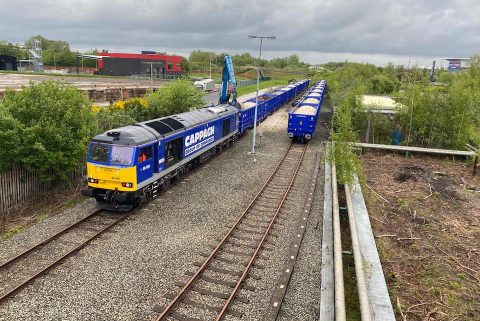UK mini budget on Friday or a fiscal non-event for rail freight sector

Rail freight has been feeling the pinch as much as any other sector in the UK economy. The direct costs of operations have been going down the fast line like an express train running late, while every freight customer has been experiencing costs and inflationary pressures at a level not seen since the early nineteen eighties. It could be time for the government to step in with direct support, but no one in the sector is holding their breath.
Do you want to read the full article?
Thank you for visiting RailFreight.com. Become a member of RailFreight Premium and get full access to all our premium content.
Are you already a member?
Having problems logging in? Call +31(0)10 280 1000 or send an email to customerdesk@promedia.nl.




